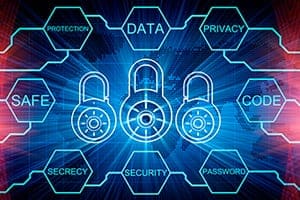Even the most diligent of computer users run the risk of picking up malware. If your machine starts behaving strange, crashes, or keeps throwing up error messages repeatedly, a computer virus is to be suspected. Other symptoms can include the system failing to shut down or restart properly, a changed home page, new toolbars and icons that you didn’t install or the laptop battery draining faster than it should. Manhattan Tech Support
Here are some ways to protect your system from viruses and malware:
Updated software
Software majors like Microsoft and Apple routinely update their software to eliminate bugs that could be potential hacker exploits. These updates fix security holes that hackers could use to infect computers with malware.
Free antivirus software
One doesn’t need to pay for software that can protect your computer or even an annual subscription to receive the latest updates. Windows users can use Microsoft Security Essentials for free. Avast is another excellent free anti-virus program that’s recommended.
Firewall
Having an antivirus software doesn’t mean that you can do without a firewall. Systems with MS Windows and Macs come ready with built-in firewall software. You just need to make sure that it’s enabled.
Strong credentials
Most users have the same password for everything, a practice which must be avoided. It is recommended to avoid using the same user name/password combination for more than one site. A strong password should be complex, use eight characters or more with a mix of letters, numbers, and symbols. To make them simpler to remember, you can try using short phrases separated by spaces or symbols.
Links within emails
If you can not identify the sender of an email, don’t click on any links it contains. According to Microsoft, half of Windows virus infections occur when the computer user clicks on something.
Downloads
It’s recommended to keep your Web browser’s security settings high so that unauthorized downloads are detected. In the case of Internet Explorer, the medium security setting should be the absolute minimum level.
Pop-up blockers
We recommend never clicking on links in pop-up windows. Modern web browsers can block pop-up windows and allow you to specify the appropriate security levels for accepting pop-ups.
Back Ups
Most users don’t ever back up the information on their computers. If you fall into that category – you will have no protection from contingencies that can range from your hard drive crashing or your house burning down. So if you value your data, be sure to back it up. Manhattan Tech Support
You have three options: online backup, cloud storage or an external hard drive. You can use a service like Google Drive, to keep your files continually backed up to the cloud. And whats more: it’s free(!) for up to 15 GB of data.
Protecting yourself from viruses and lost data is much easier these days than it used to be and doesn’t cost much. You just need to spare a few minutes to make sure you’re protected.
Related Post: Protect Your Information in the Wake of Wi-Fi Security Hack


